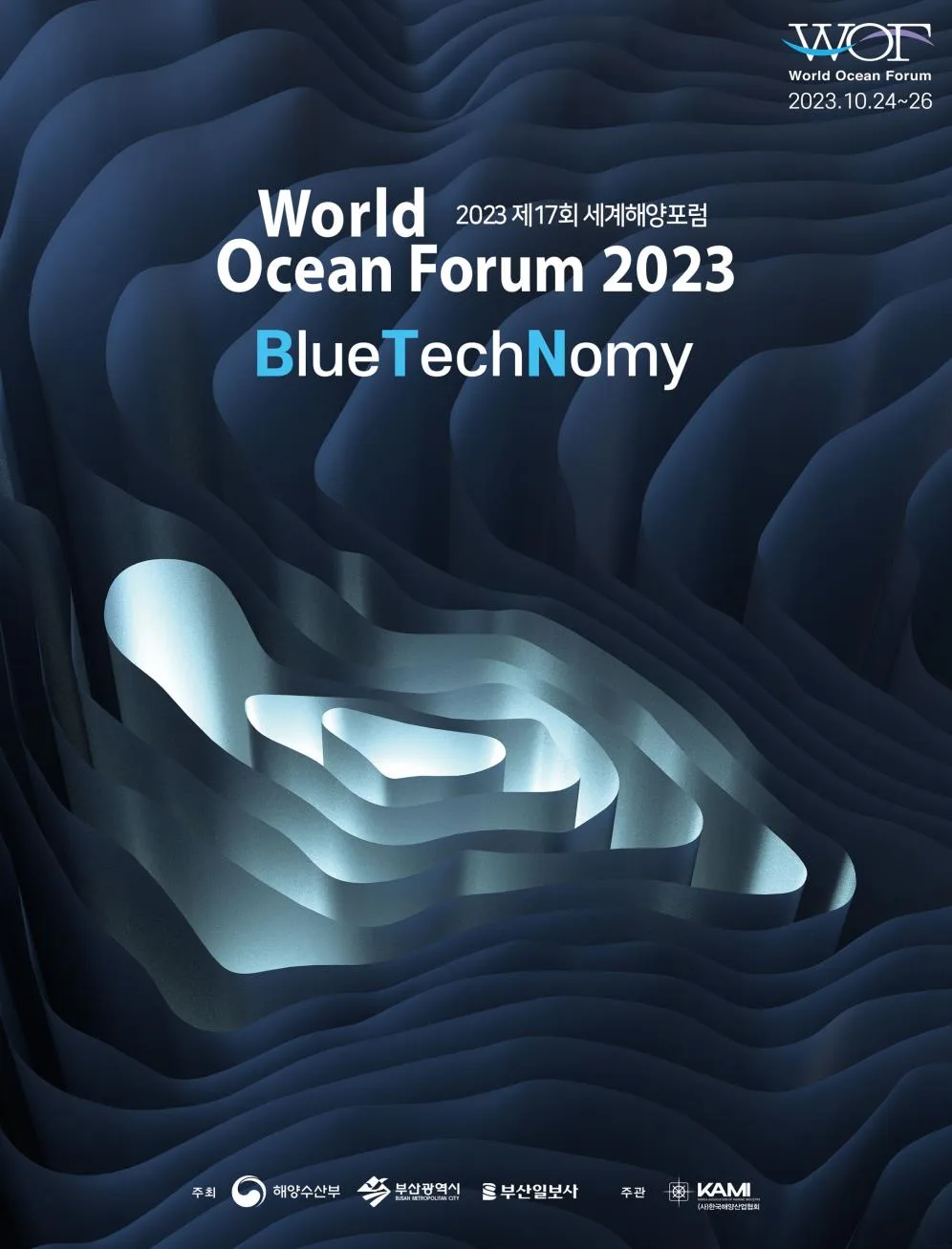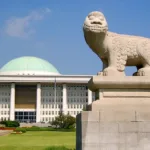Busan – The global economy, historically dependent on fossil fuels, is at a precipice. With the climate crisis escalating, there’s an urgent push towards sustainable energy solutions that have minimal environmental impact. For the Korean economy, this ‘energy transition’ poses both a challenge and a golden opportunity.
To address these pressing issues, the 17th World Ocean Forum (WOF2023) has carefully chosen ‘Bluetechnomy’ as this year’s focal theme. In the aftermath of the COVID-19 pandemic, as we find ourselves in a rapidly transforming era, the event endeavors to define our aims, the roadmap to achieve them, and the vision we mustn’t lose sight of.
At its core, ‘Bluetechnomy’ espouses an ocean-centric “Blue” economy. The tools and techniques for its realization are enveloped in “Tech”, underscoring the importance of technological advancements. Recognizing the undeniable need for continuous economic growth, the term culminates in ‘Nomy’, emphasizing a sustainable economic approach. This theme encapsulates the maritime industry’s resolve to meld sustainable blue economy growth with cutting-edge technology.
Program Highlights:
- Oct. 24th (Tuesday) – Blue Tech Day (Ocean Today): Delegates will convene at the Crystal Ballroom A & BC. After registration, sessions on marine policy, marine finance, SMR, marine transport, and fisheries will ensue.
- Oct. 25th (Wednesday) – Blue Innovation Day (Ocean Future): Activities will continue in Crystal Ballroom A & BC with discussions encompassing marine humanities, shipbuilding, cruises, and marine bio.
- Oct. 26th (Thursday) – Ocean Forever: The concluding day will host sessions on KIOST, marine design, and a concluding epilogue in Crystal Ballroom A & BC.
The evening of this day will culminate in the “2023 Korea Marine Honors Network Night”, an invite-only event designed to foster deeper connections among attendees.
Refining the earlier list of topics: Discussions at WOF2023 will cover oceanic policy, marine-based finance, oceanic urban networks, SMR vessels, naval construction, harbors, aquatic life and fisheries, marine biology, maritime cruises, marine cultural studies, marine-centric designs, along with a special session curated by KIOST, and a wrap-up epilogue.
Mayor Park Heong-joon of Busan, along with other key figures, is poised to grace the opening ceremony. Moreover, 89 luminaries from 11 countries will partake in dialogues, sharing invaluable insights and fostering collaborative discussions.
A seminal moment to anticipate is the keynote by globally celebrated activist-economist Jeremy Rifkin. Virtually addressing attendees, Rifkin will sketch out future trajectories for South Korea and the broader maritime domain.
With the World Ocean Forum, Busan reaffirms its commitment as a maritime thought leader, steering pivotal conversations around the sustainable future of oceans and the intertwined global economy.



